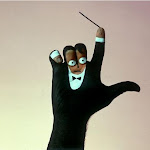
Special to the Daily News, Palm Beach, FL
Wednesday, November 05, 2008
If any conductor qualifies for living-legend status, it's Russia's conductor Valery Gergiev. Since he began appearing in South Florida three years ago, he has proven why he's the decade-long darling of Lincoln Center and music meccas worldwide.
His debut at the Kravis Center in 2006, leading the Rotterdam Philharmonic Orchestra with pianist Vladimir Feltsman, still stands as one of the supreme concerts of the young 21st century.
Returning to the Kravis on Tuesday afternoon, Gergiev led his own Kirov Orchestra — officially renamed on Monday as the Maryiinsky — to reflect its original, historic designation: the orchestra of the oldest theater in Russia, the famed Maryiinsky Theatre in St. Petersburg.
The program of Wagner, Beethoven and Prokofiev was typical Gergiev: thoughtful and intense, oversize but intimate, complex yet speaking directly to the heart.
But with guest pianist Alexei Volodin in Beethoven's Piano Concerto No. 4, the Gergiev mystique seldom reached its accustomed depth. Although the 31-year-old rising star was on tour with his hometown St. Petersburg orchestra, he rarely connected musically with the players behind him.
As a pianist, Volodin was equal parts ideal and imperfect. His technical prowess and strength were astonishing. He practically had 10 computerized fingers at his disposal. Still his habit of suddenly rushing the tempo — as jolting as speed bumps on a highway — unsettled the unwary listener.
Even in a work as famous as the Fourth, Volodin brought attention to details that rarely reach a microphone. But the music's warmth and humanity suffered. Instead, he created dramatic contrasts between the moods and melodies, but went no farther.
That left the 37-minute Beethoven straddling two worlds. With Gergiev, the orchestra opened up the big picture and gave the work scope. Whether majestic or prayerful, he saturated the music with warmth, graceful nuances and an inner glow.
With Volodin, the piano was hyper-articulate, brilliant but detached. The pianist was rock to the orchestra's water.
Wagner's Prelude to Act I from Lohengrin and two scenes from Prokofiev's ballet Romeo and Juliet, showed the skill of Kirov/Maryiinsky players. Even if Gergiev couldn't quiet the violins as much as he wanted in the Wagner, he created an aura of mystery, intimacy and delicacy in the otherworldly prelude.
Romeo, however, was outstanding. Despite a slip or two in the solo woodwinds, the orchestra swerved with ease through Prokofiev's complex and winding layers. For more than an hour, Gergiev delved into each vignette of the ballet score, carving out beautiful, breathtaking moments of comedy, sinister turbulence, splendor, elation and almost aching bittersweetness.
The Kravis audience rustled restlessly during 20-plus episodes; some left early. But Gergiev's scene painting was so dramatic that dancers would have proved a distraction. This was purely an orchestral tour de force.
Yet after an hour-plus of Prokofiev, Gergiev and his band still had the energy, not to mention the chops, to nail an over-the-top encore, the three-minute ground-shaker that is Wagner at his most heroic, the Prelude to Act III of Lohengrin.
The orchestra, led by conductor Valery Gergiev, opens Regional Arts' Music at 8 series Wednesday, Nov. 5, at 8 p.m. with Mendelssohn and Prokofiev. Guest soloist Alexei Volodin performs Prokofiev's Piano Concerto No. 4. It's at the Kravis Center, 701 Okeechobee Blvd., West Palm Beach, FL. For tickets, call (561) 832-7469 or visit www.kravis.org.





